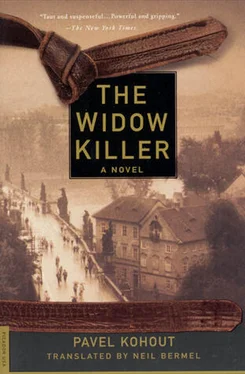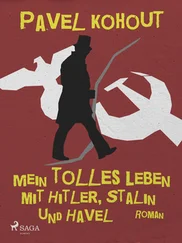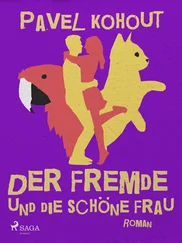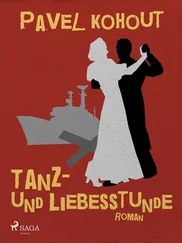Maybe it wasn’t wrong for him and Hilde to be so suspicious of Germany’s highest leader, however awful it sounded. What difference did it make, in the end? This bloody war would decide the fate of the German people for generations to come — and perhaps even their right to exist. Even if Buback had been right to think that Hitler had failed his country, shouldn’t Germans keep trying to avert a total defeat and at least achieve an honorable peace?
Only a year ago he and everyone else had condemned the assassination attempt on the Führer as a monstrous act, carried out by traitors in the pay of the enemy. But maybe the conspirators were simply patriots who had given in to their doubts, just as he and Hilde had. If so, they were not alone. And if Buback was right, there would be more brave men to come who would risk the punishment Meckerle had supposedly described to his closest advisers: being hanged from a butcher hook on a thin string, to die a slow, shameful death.
Buback did not believe there were any altruists of that sort in the Gestapo. There weren’t even any real detectives among his own men. They all came straight from SS schools with a political mission, loosely interpreted as knocking out the teeth of true or imagined Resistance workers. After all, they had stopped investigating their fellow Germans’ minor offenses a long time ago. But one scenario was probable enough to be vexing. There were many who would be interested in Buback’s inner thoughts, because that was their job: to neutralize anyone harboring harmful opinions.
There was only one solution: to support anyone who could promise Germany would not be trampled underfoot, and then wait until they could finally carry out what they’d failed at the year before. And that meant supporting the very army he was now watching and admiring, as it trudged unbroken toward its decisive battle.
His new resolve had an impact on his behavior toward the two Czechs. He knew that for them, Hitler probably embodied all Germans. Suddenly he no longer wanted to contribute to this false impression. And so, to his own surprise, he accepted the gift they brought him: bread with bacon in a fresh white napkin. He continued to keep his distance, so as not to arouse suspicion. However, he felt sure that Beran’s assistant was indebted to him, and so, like it or not, would come out of his shell. The kid even explained that he had wanted to let his mother know he had gotten engaged.
Buback kept up the flow of conversation without asking suspicious questions. A competent young man in a demanding job, like Morava, had to be aware that a police liaison officer to the Gestapo might be interested in other things besides a brutal murderer. And that in itself said a lot about the Czech mentality, which had changed drastically during the Occupation.
Then, later on, Morava began to repeat a certain woman’s name. Belatedly Buback realized it belonged to the very girl he had been thinking about — these days, more often than about Hilde. ..
The conversation with his mother comforted Morava. For years he had felt guilty for ruining her dream of keeping the smithy in the family. He visited her regularly, but the weight never lifted.
Until today, that is, when a miracle occurred. As he raced to tell her about Jitka, the tears in her eyes frightened him at first. Would she be jealous now, as well? But suddenly she hugged him and said he had made her unbelievably happy.
He suggested to her that she move to Prague, at least for a while. She could stay in his room, since he would be living at Jitka’s anyway. That way, she’d get to know Jitka and they wouldn’t have to fear for her safety here, where the war loomed larger every day. Then, with his head turned, his conscience clear for the first time in a long while, he watched the place where his life began to shrink away, until all that remained was a bright spot soon swallowed by the horizon of grapevines.
To add to Morava’s unusually good mood, the German’s priggish-ness was noticeably on the wane. Of course, Morava turned even the most innocent of questions inside out before answering, swiftly figuring how Beran would read it. But Buback seemed more interested in the area they were passing through, so Morava told stories about his childhood, confident that he was on safe ground. In some places here the road formed an unguarded border between the Protectorate and the Sudeten territories of the former Czechoslovak Republic, which the Munich agreement had effectively given to the Reich, a goodwill gesture that foreshadowed the annexation. How would things look after the war, he suddenly wondered, would he meet his classmates — if they hadn’t fallen in battle, that is — who had saluted Hitler and roared “Heim ins Reich“? Could they still live here, side by side?
To Buback, however, Morava simply described how ten years ago they had thought nothing of switching back and forth between Czech and German; no one would ever have claimed that one was better than the other. Emboldened by a further innocent question, he recalled how they had sung in both languages during wine tastings in the cellars and invited anyone they wanted to the zabija  ka, regardless of nationality. What was a zabija
ka, regardless of nationality. What was a zabija  ka? the German queried, and Beran’s instructions flashed through Morava’s head.
ka? the German queried, and Beran’s instructions flashed through Morava’s head.
He described carefully and yet vividly the Moravian custom of the pig slaughter, in which the most basic human need for nourishment merges with a time-honored ritual of civilization and culture. By offering another person food from your own plate, you prevent the elemental greed at the root of all wars. Without using exactly those words, he emphasized that even in times like these, when food became a rare commodity traded on the black market, in south Moravia the old laws still held. If you had given your neighbor a share of the pig slaughter in times past, then you did it now as well. Which these days could be dangerous for someone who gives generously, he said. Suddenly Morava found himself describing — somewhat more boldly than Beran had advised — the story of Jitka’s father, who had slaughtered a pig, not to sell it on the black market, but to divide it among his relatives and friends.
He instantly regretted his move when his neighbor stiffened again, but before he could reproach himself for his simplemindedness, he heard the relatively affable reply that the Reich’s offices respect the law but know it needs to be interpreted at times. He, Buback, personally did not believe that the father of this.. what was her name again? Jitka Modrá… yes, of this Miss Modrá—surely she was unmarried, at her age? — would be punished for black marketeering if the facts were as Detective Morava reported them. When they got back to Prague, Morava should tell the young lady that she could call on Buback for help in this matter; the German would certainly look into the case — all he needed was the personnel file.
Ahead, the tower of the castle was rising out of the vineyards; the suspect Jakub Malatínský was supposed to be waiting for them. His absence, however, was not to be the last surprise that day.
The conversation about Jitka Modrá excited Buback. She was undoubtedly a delicate chip off the old paternal block; the girl’s father had probably been acting in the spirit of the old traditions, and if so, then he could help her.
Buback’s new task assumed a scenario which, if expressed aloud a short while ago, would have been grounds for a charge of high treason: that the proud Reich which had covered most of the continent would shrink back to its core. It was no longer possible to evacuate or liquidate the millions of Czechs living here who had never submitted to their loss of independence; at best Germany might persuade them not to revolt through deft use of the carrot and the stick.
Читать дальше

 ka, regardless of nationality. What was a zabija
ka, regardless of nationality. What was a zabija 










